#Fish facts
Explore tagged Tumblr posts
Text
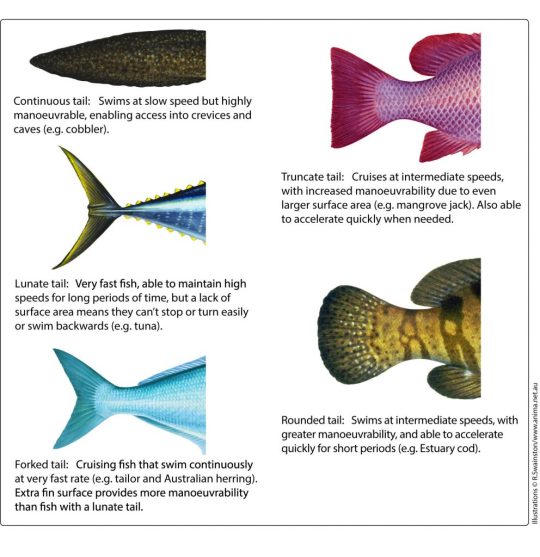
The shape of a fish's caudal tail can tell you a lot about how fast the fish moves! A rounded tail is the slowest and a lunate tail is the fastest! The lunate tail has the most optimal ratio of high thrust and low draw, making it the fastest.
Ichthyology Notes 2/?
#marine biology#science#biology#wildlife#marine life#ocean#animals#marine ecology#animal facts#fun facts#fish#fishies#zoology#fish anatomy#anatomy#fish facts#ichthyology
43K notes
·
View notes
Text
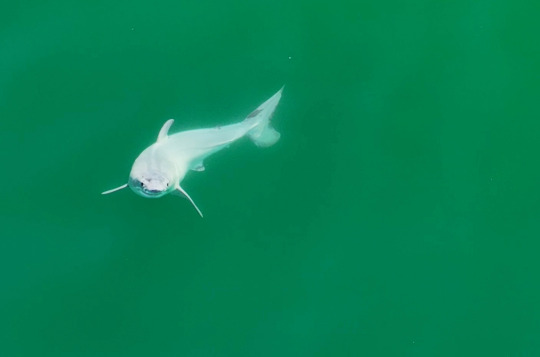
Exciting news for the cute shark lovers of the world! We finally have a recorded sighting of a baby great white shark, likely only a few hours old.
The question of where great white sharks give birth still remains a mystery to this day but this footage may suggest the coasts of California, where the footage was taken, are a site where these sharks give birth.
#marine animals#marine biology#shark#sharks#shark facts#fish facts#sharkblr#fish#fun facts#science#science news#great white shark
9K notes
·
View notes
Text
While researching for upcoming fish facts I ended up going down a rabbit hole on parrotfish teeth, and I need to share this information in another form than just a fish fact. This stuff is unbelievable. You know the beak of the parrotfish, right? It's formed from the fused teeth of the parrotfish, as an adaptation to have ample biting surface to scrape off and chew on coral, their main food source.

A close-up of the beak of a parrotfish. It has this honeycomb pattern which I find very cool.
Well. To constantly chew on coral, they must have some pretty hard teeth, right? And they indeed do: the teeth of the parrotfish are made up of a mineral called fluorapatite, which forms intricate, chainmail-like woven structures on a microscopic level. Fluorapatite just so happens to be the second hardest biomineral found. This stuff, the parrotfish's teeth? A square inch of the parrotfish's teeth can withstand a whopping 530 TONS OF PRESSURE!!! That's the weight of 88 ELEPHANTS on top of a single square inch!!!! That's crazy, right!!?? The only biomineral that is tougher is the teeth of chitons, that is the single tougher biological thing in the whole world!!! Not only that, but the stiffness and hardness of the teeth increases the more we get closer to the tip (as the mineral fibers get closer and closer to one another), the very tips of the teeth even surpass the chiton teeth in stiffness!!!

Here are pictures produced through a process called PIC mapping, which shows the size and orientation of crystal fibers at the tip of the teeth.
That feels like it shouldn't be right, no? You'd think that the toughest biominerals in the world would belong to, like, the skull of an animal that rams into rocks or maybe the shell of some animal, not the teeth! The teeth of chitons and parrotfish out of all animals no less! Who would've guessed that the diet of "rock animal" would make the parrotfish require some of the toughest dentition the world has ever seen, huh? That right there is one super good reason why you should never stick your finger in the mouth of one.
Every day I am blown away by how amazing fishes are....
9K notes
·
View notes
Text
Cryptid fish that has only been seen once and never again that may or may not exist but well never know my beloved

#BIG FUCKING DRAGONFISH IS JUST THERE IN THR SEA and HAS ONLY BEEN SEEN ONCE and NO ONE FUCKING KNOWS IF ITS REal????#oceanology#fish#marine biology#marine life#marine ecology#oceanography#deep ocean#marine#deep sea#conspiracy#cryptid#cryptids#cryptozoology#USO#conspiracy theory#marine fish#William Beebe#Otis Barton#fish facts#ocean life
14K notes
·
View notes
Text
Cave fish time!!
Cryptotora thamicola or the waterfall climbing cave fish are extremely rare, found in only eight caves on the border of Thailand and Myanmar. Like most cave fish they are blind and pigmentless but what makes them special is there ability to cling to walls and climb up flowing water.
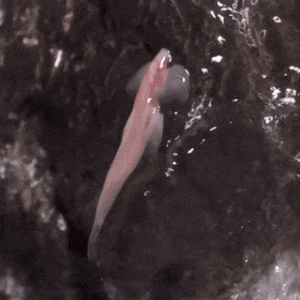
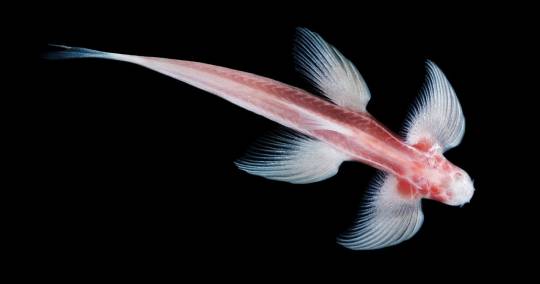


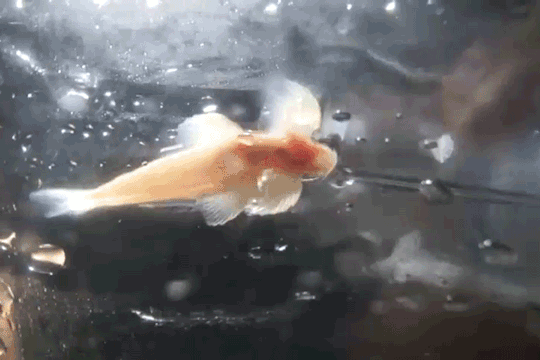
#fishblr#marine biology#caves#spelunking#cave fish#caving#nature#strange#gif#fish facts#fish#fresh water
9K notes
·
View notes
Text


Everyone look! A tiger trout is a rare cross between a brown and brook trout!
While very beautiful, they generally struggle to survive out there in the wild :(
Via Pinterest
#fishblr#fishposting#fish irl#fish facts#trout#trout!!!!!!#tiger trout#hope these guys are okay#nature#fishing#fish spotlight
413 notes
·
View notes
Text
this absolute icon

not only does she wear bright red lipstick she literally struts across the sea floor: red lipped batfish use their pectoral fins to 'walk' because they aren’t good swimmers.
#this is her world all of us just live in it#fish facts#fishblr#fish#marine animals#marine biology#marine life#aquatic life#red lipstick#red lipped batfish#deep sea creatures
420 notes
·
View notes
Text
🐠 Daily Fish Fact: 🐠
Pinnate Batfish adults are normally solitary but will gather in large schools to move over open substrates. The juveniles are mimics of a toxic species of flatworm by colour and shape. They feed on algae as well as jellyfish and other gelatinous zooplankton. This species has been observed to significantly reduce algal growths on coral in studies simulating the effects of overfishing on the Great Barrier Reef.

#pinnate batfish#batfish#black and orange#fish#daily fish#fish facts#daily fish facts#respect the locals#ocean#ocean life#ocean fish#ocean animal#marine#marine fish#marine animals#marine life#marine biology#special interest#fish post#shark blog
475 notes
·
View notes
Note
i would like to request your least edible fish
The only objectively correct answer is the Devil’s Hole Pupfish. Even if they look like gummy bears covered in sugar
These critically endangered little guys live only in one place that just so happens to be a National Monument. It’s under government protection as well as fenced off, constantly surveilled, and with decoy locations to throw off the scent.
So in the off-chance you do get to pop one of these suckers in your mouth… yeah, your days will be numbered.
But seriously, skim through the Conservation section of the wiki page this shit wild

You get a Devil’s Hole Pupfish
Cyprinodon diabolis
257 notes
·
View notes
Text
Critter fact #87:
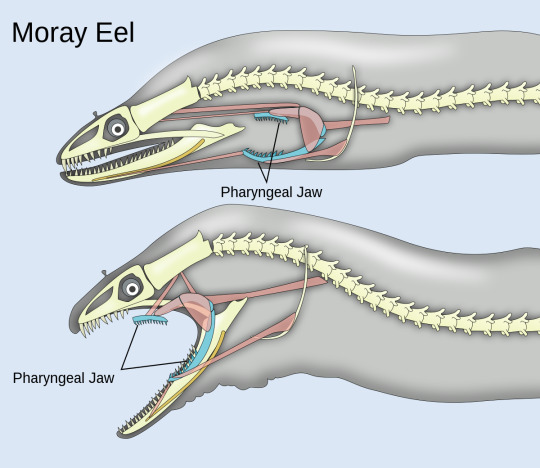
Moray eels have two sets of jaws! When the jaws open wide and there's more jaws inside, that's a moray!
880 notes
·
View notes
Text

There are four types of fish scales!
Cycloid scales are thin, overlap, and flexible. They're found on primitive teleosts (like minnows and carp).
Ctenoid scales have small, backwards pointed scales (known as cterns) make the fish more hydrodynamic and faster. They're found on Advanced Ctenoids (like perch and sunfish).
Ganoid scales are thick, diamond-shaped, and mostly non-overlapping. They're found on Chondrostei (like sturgeons and paddlefish).
Placoid scales are spikey and tooth-like with nerves. These are found on Chondrichthyes (like sharks and rays).
Ichthyology Notes 3/?
#science#biology#animals#ocean#wildlife#marine ecology#animal facts#marine life#fun facts#marine biology#fish#fish facts#fins#fish fins#scales#fish scales#ichthyology#fish anatomy#anatomy#minnows#carp#perch#sunfish#sturgeons#paddle fish#sturgeon#paddlefish#shark#sharks#rays
20K notes
·
View notes
Text
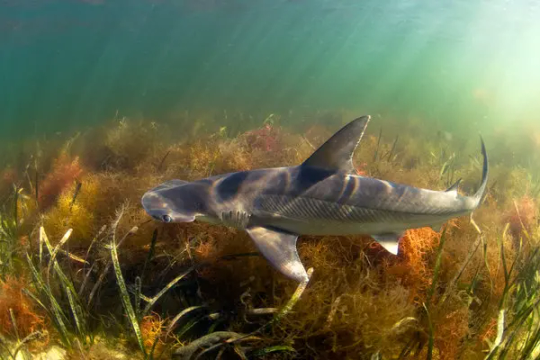
Contrary to popular belief, not all sharks are carnivorous. The bonnethead shark (a member of the hammerhead sharks) was recently discovered to be omnivorous, including seagrass in their diet.
#fish facts#marine animals#marine biology#shark#shark facts#sharks#fish#sharkblr#fun facts#bonnethead shark
4K notes
·
View notes
Text
Daily fish fact #846
Dealfish!

It’s a deep sea pelagic fish that uses its extendable mouth to suck in small fish and squid. It is usually solitary, but congregates with others of its kind for unknown reasons.
#not sure why this pelagic fish is suddenly on the ocean floor#fish#fishfact#fish facts#fishblr#marine life#marine biology#marine animals#sea creatures#sea animals#sea life#deep sea#deep sea life#deep sea creatures#dealfish#ribbonfish
869 notes
·
View notes
Text
Fish Fact Friday! 2/21/25
Spotted garden eels (scientific name Heteroconger hassi) secrete a mucous that they then use to coat and cement together the sands of their burrows!

References:
58 notes
·
View notes
Note
If you would like to talk about fish facts may I request a fun fish fact? :)
The Dwarf Seahorse has a hunting success over 90 percent!
It's head shape creates a “no wake zone” in the water, meaning they don't disturb water around them, allowing for the seahorse to successfully ambush its prey of choice, a type of plankton called the copepod. (This research was done here in Texas!)


Look at this little man. A proud hunter!
The dwarf seahorse is the third smallest seahorse species in the world. It is found in seagrass beds in the Gulf of Mexico, the Atlantic Coast of Florida, and the Caribbean.
Have a cool video of a seahorse hunting
youtube
#man I got carried away by the fish fact#i love learning about animals#its so cool#yippie#ask stuff#bread#animal facts#fish facts
88 notes
·
View notes
Text
Cuttlefish shifting colors!
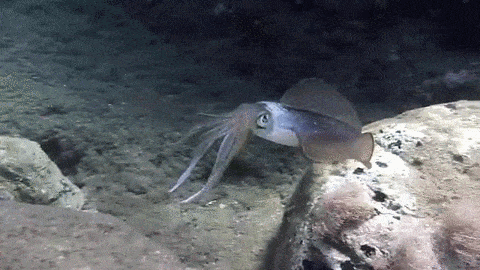

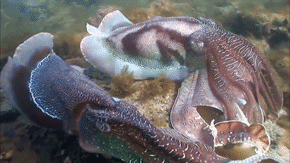
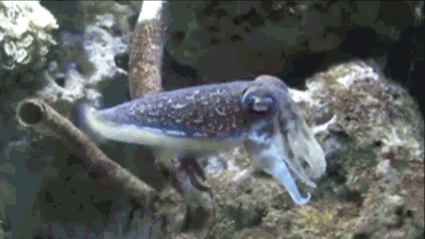
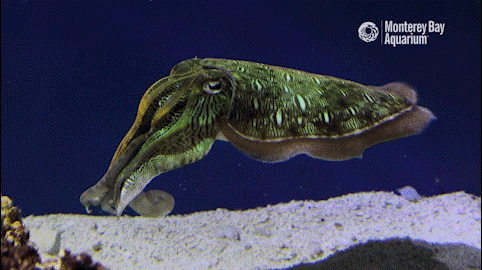

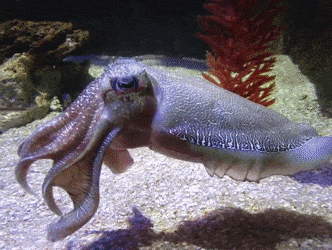
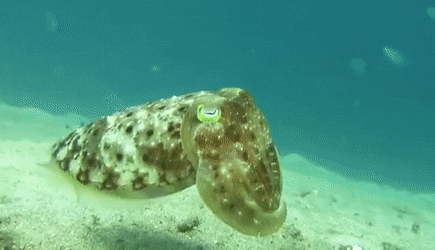
#just look at them!!!!!#fishblr#marine biology#ocean#fish#ocean life#nature#fish facts#cuttlefish#magical
2K notes
·
View notes